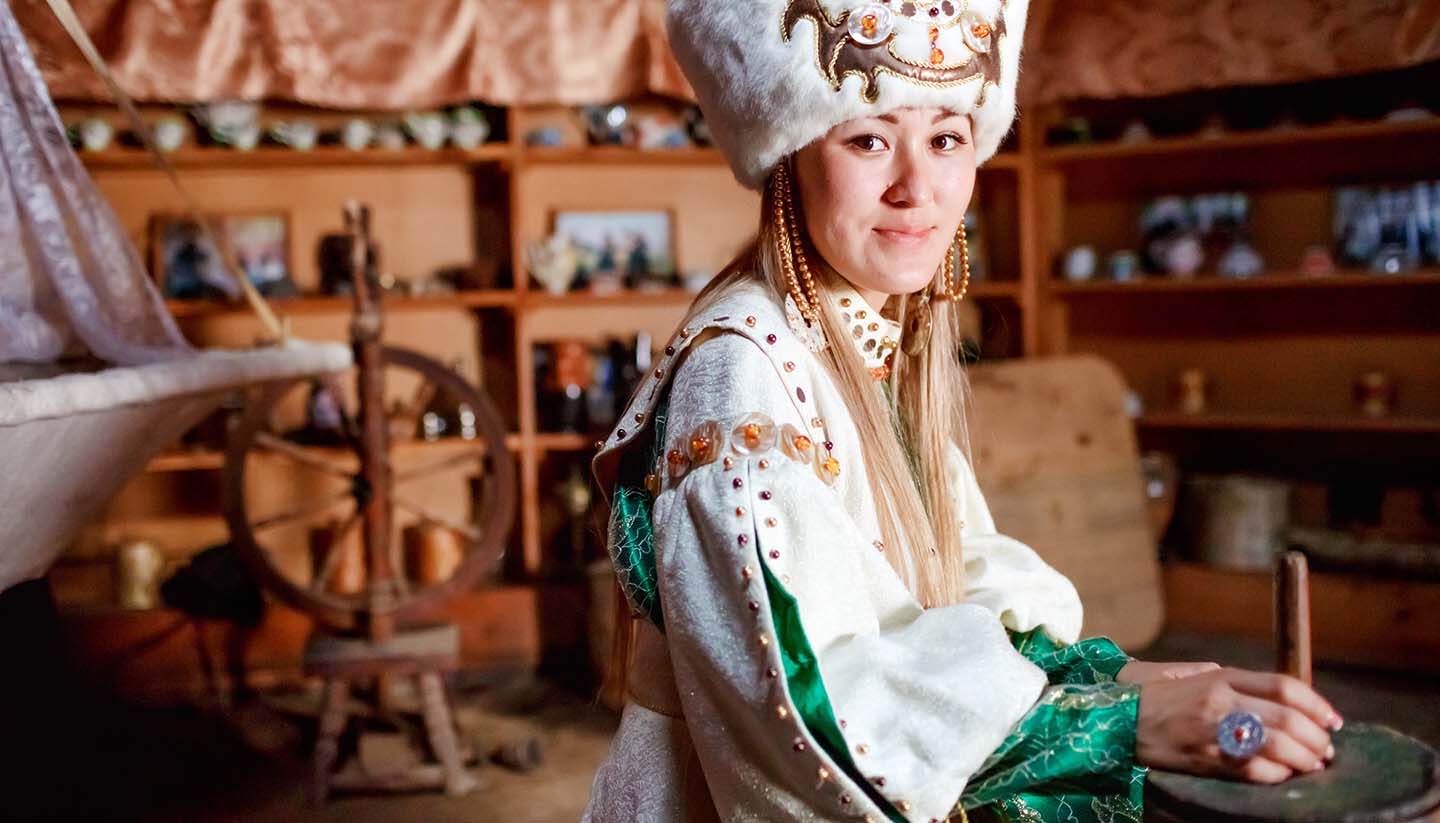Kyrgyzstan History, Language and Culture
History of Kyrgyzstan
The region now known as Kyrgyzstan has seen many invasions and colonisations over the centuries. First settled during the pre-historic period, it became home to Scythian clans during the 1st millennium BC before coming under the control of various Turkic alliances from the 6th century onwards, a period in which the region prospered from its prime location on the Silk Road between China and Europe. Islam arrived with Arab invaders in the 8th century but the Arabs did not stay long and the region came under the control of the Karakhanid dynasty based in Bokhara shortly afterwards.
Kyrgyz tribes started to arrive from southern Siberia sometime around the 10th century, although they soon fell victim to Genghis Khan’s Mongol horde that was plundering and devastating vast tracts of Central Asia at this time. The Kyrgyz later became subjects of the Chinese and the Uzbek Kokand Khanate until Russian Tsarists colonised the region in the early 19th century.
Kirgizia, as it was formerly known, became part of the Soviet Union in 1922 and remained an autonomous republic within the USSR until independence in 1991 when it seceded along with many other former Soviet republics. The first president of the newly formed Kyrgyz Republic, Askar Akayev, managed to remain in power for 16 years before being ousted in a landslide victory in 2005 following widespread demonstrations against high levels of poverty and alleged political corruption. The victor of this so-called ‘Tulip Revolution’ was Kurmanbek Bakiyev, who served as president until 2010 when widespread violent protests forced him to leave the country. These same protests also triggered ethnic violence between Kyrgyz and Uzbeks in the south of the country resulting in hundreds of deaths and thousands fleeing as refugees.
The new president, Almazbek Atambayev came to power in December 2011.
Kyrgyzstan Culture
Religion in Kyrgyzstan
The major religion is Islam with 80% of Kyrgyzstan's citizens being Sunni Muslim. Christian and Russian Orthodox minorities make up a further 17%, with 3% following other religions..
Social Conventions in Kyrgyzstan
Hospitality is an important component of Kyrgyz life and guests are highly honoured, especially in rural households. If invited to a Kyrgyz home or yurt a small gift is appreciated. Shoes should always be removed at the threshold. Kyrgyzstan is a fairly conservative country and handshaking should take place between men but not between men and women. At a meal, bread should be treated respectfully and never put on the floor or casually discarded. Food is eaten with the right hand only. Bride-kidnapping, although now officially illegal, is still practised in parts of the country.
Language in Kyrgyzstan
The official language is Kyrgyz, a Turkic language closely related to Uzbek, Kazakh, Turkmen and Turkish. Any attempt by a foreigner to speak Kyrgyz will be greatly appreciated. In deference to the Russian population of Kyrgyzstan, Russian is also protected under law. Kyrgyz is written using an adapted Cyrillic script similar to Russian. Meanwhile, most people can speak Russian, and do so, especially in the north. English is widely spoken by those involved in tourism. Uzbek, Kazakh, Tajik, Korean and various other regional languages and dialects are also spoken.


